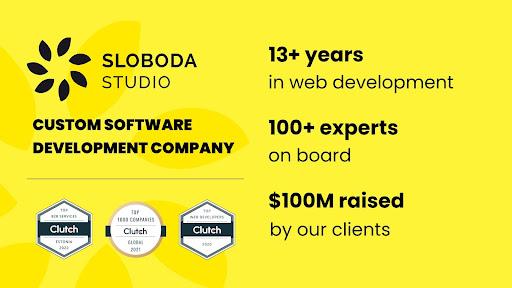In today’s fast-paced digital age, businesses looking to hire Django developers are making a strategic choice. As enterprises constantly seek robust and efficient web development solutions, they’re drawn towards the strengths Django has to offer. Among the plethora of web frameworks available in the market, Django distinctly stands out, not just for its proficiency but for its adaptability and forward-looking features. As the demand for web applications continues to soar, so does the need for capable developers, and Django developers fit that bill perfectly. Embracing Django means positioning your organization at the forefront of technological advancement, ensuring both relevance and competitive edge.
Table of Contents
The Growing Demand for Django Developers
The past few years have seen an upward trajectory in the demand for Django developers. With more businesses recognizing the strengths of the Django framework, this trend is expected to continue. From startups to well-established organizations, companies are looking for skilled Django developers to build efficient web applications.
Looking for great Django developers? Check out Sloboda Studio. They have a team of experts ready to help, whether you’re starting a new project or improving an old one. They know their stuff and can get the job done right and fast.
Benefits of Django Development
Rapid Development with Django
Django has carved a unique space in the web development community, especially because of its emphasis on speedy development. Often referred to as the “web framework for perfectionists with deadlines,” it stands out for its efficiency and productivity. The guiding principle behind Django is the ‘Don’t Repeat Yourself’ (DRY) approach. This encourages developers to produce code that’s both clean and reusable, streamlining the development process. The outcome? Applications that are developed at a swift pace but without any compromise on their overall quality or functionality.
Robust and Scalable Applications
One of Django’s standout features is its ability to handle sites that experience high volumes of traffic. Its scalable nature means it can adapt and grow in line with a business’s needs. Major industry giants, such as Instagram and Pinterest, have integrated Django into their operations, a testament to its robust capabilities. These platforms require a framework that can cater to millions of users simultaneously, and Django’s architecture is perfectly suited for this, ensuring smooth user experiences even with massive user bases.
Security Features
In the digital realm, security is paramount, and Django recognizes this. It offers a plethora of built-in security features, designed to guard web applications against prevalent threats such as SQL injection and Cross-site Scripting (XSS). But it doesn’t stop there. The active and observant Django community, along with its dedicated developers, ensure that the framework stays updated. They are consistently on the lookout for potential vulnerabilities, releasing timely updates and patches. This commitment to security makes Django one of the safest frameworks, providing an environment where developers can build with confidence and users can operate with peace of mind.
Why Django Developers Are Essential
Understanding the Role of Django Developers
Django developers possess a unique blend of expertise in Python, which forms the foundation of Django, and a deep understanding of the framework’s extensive libraries, tools, and plugins. Their proficiency extends beyond just coding. They play a crucial role in shaping the trajectory of web applications, making them swift, safeguarded, and adaptable. Their insights and skills are essential in delivering optimal web solutions that stand out in today’s digital landscape.
How Django Developers Contribute to Project Success
The success of a web project often hinges on timely delivery and functionality. Django developers, with their adeptness at selecting appropriate tools from the Django ecosystem and their ability to write streamlined code, have a profound impact on these factors. Their expertise ensures that projects not only meet but often exceed expectations, achieving desired results within stipulated timeframes, making them invaluable assets in web development ventures.
Key Skills and Expertise of Django Developers
Proficiency in Python
Python is renowned for its clear, user-friendly syntax, which is integral to crafting efficient web solutions. This simplicity accelerates the learning curve for newcomers while aiding experienced developers in creating intricate applications. For Django developers, mastering Python is non-negotiable. Their expertise in Python is crucial for tapping into Django’s full potential, enabling them to develop versatile and robust web applications.
Understanding of Web Development Principles
Web development is a multifaceted discipline encompassing various components. Django developers need a holistic grasp of this domain, ranging from grasping HTTP methods to adeptly managing databases. This foundational knowledge is pivotal as it ensures they can seamlessly integrate multiple elements, leading to the creation of cohesive, efficient, and user-friendly web platforms.
Django-Specific Skills
Django offers a rich ecosystem with tools like Django ORM and the Django REST Framework. Skilled Django developers harness these resources, along with the capability to design custom middleware and other Django-specific utilities. This specialized skill set allows them to craft tailored solutions, optimize application performance, and address unique project challenges, setting them apart in the realm of web development.

The Django Ecosystem
Overview of Django Framework
Django stands out as a premier, open-source web framework, designed to streamline the complexities of web development. Adhering to the MVC (Model-View-Controller) architecture, it provides a structured approach to creating web applications. Django’s emphasis on rapid development, combined with its lucid and practical design philosophy, makes it a favored choice for developers aiming to produce efficient and aesthetically appealing web solutions.
Django ORM (Object-Relational Mapping)
Django’s ORM is a transformative tool that bridges the gap between databases and traditional programming. Instead of using SQL queries, developers can interact with databases utilizing the familiar Python code. This not only demystifies database operations but also ensures that applications remain portable across different database systems, streamlining development and enhancing versatility.
Django REST Framework
When it comes to developing APIs, the Django REST Framework emerges as a dominant force. This comprehensive framework simplifies the complexities associated with API development. Offering a versatile toolkit, it enables developers to build robust, scalable, and adaptable web applications, enhancing the user experience and promoting efficient data interchange in digital ecosystems.
Use Cases and Industries for Django Development
Web Applications
Django stands as a versatile backbone for a myriad of web applications, ranging from bustling social media platforms to intricate analytical tools. Its comprehensive set of tools and libraries facilitates the creation of diverse web solutions, enabling developers to address varying user needs and ensuring a seamless digital experience across different platforms.
Content Management Systems (CMS)
Content management is pivotal in the digital age, and Django rises to the occasion with its inherent flexibility and scalability. Its capabilities extend beyond traditional CMS frameworks, allowing developers to craft custom solutions tailored to specific business requisites. This ensures businesses have a CMS that is both user-friendly and aligns with their unique operational needs.
E-commerce Platforms
E-commerce is a juggernaut in the digital realm, and platforms like Shopify exemplify Django’s prowess in this sector. Leveraging Django’s robust architecture, these platforms seamlessly manage thousands of transactions daily. The framework’s reliability, combined with its adaptability, makes it an invaluable asset for businesses aiming to flourish in the bustling e-commerce landscape.
Hiring Django Developers
Where to Find Django Developers
Finding proficient Django developers is pivotal for project success. Multiple platforms, such as specialized Django job boards, cater to this specific need. Additionally, Python-centric meetups provide opportunities to network with potential candidates. Platforms like LinkedIn further expand the search, allowing recruiters to view portfolios, endorsements, and recommendations, ensuring they connect with top-tier Django talent.
Interviewing and Evaluating Candidates
The interview process for Django developers should be multifaceted. It’s essential to assess their problem-solving prowess, as real-world development often presents unforeseen challenges. Scrutinizing past projects can provide insights into their practical experience. Furthermore, their familiarity with Django’s diverse tools and adaptability to the ever-evolving tech landscape are vital indicators of their competence.
Onboarding Django Developers
Once hired, the onboarding phase becomes crucial. Introducing Django developers to the company’s business model ensures they align their development strategies with overarching business goals. Clarity regarding their specific roles in the development process, combined with an understanding of the project’s objectives, ensures a smooth transition and sets the stage for a fruitful collaboration.
Challenges and Considerations
Common Challenges in Django Development
Django, while powerful, presents a learning curve that can be daunting for newcomers. Navigating its intricate features requires time and dedication. Furthermore, as with most dynamic tech tools, keeping abreast of the latest updates in Django is essential. Another challenge is the seamless integration of third-party tools, which can sometimes pose compatibility issues.
Overcoming Hurdles and Maximizing Results
To truly harness the power of Django, continuous learning is imperative. Regularly updating one’s skills can mitigate the challenges of evolving versions. Active participation in the Django community offers a platform for shared knowledge, invaluable insights, and solutions. Adopting a proactive approach to problem-solving, coupled with tapping into collective wisdom, paves the way for optimized results in Django development.
Final Thoughts
Django, with its powerful features and flexible architecture, has undoubtedly established itself as a top-tier choice in the realm of web development frameworks. Its adaptability and efficiency make it a favorite among developers, allowing them to craft websites and applications that not only perform optimally but are also highly secure. When businesses onboard skilled Django developers, they are essentially equipping themselves with a distinct advantage in the highly competitive digital space. These developers, with their deep knowledge of the Django ecosystem, can craft solutions tailored to unique business challenges, ensuring both reliability and innovation. Furthermore, Django’s versatility makes it suitable for a diverse range of industries, from e-commerce and finance to entertainment and education. As more industries recognize the potential of Django, its prominence is set to grow even further, reaffirming its role in shaping the future of digital solutions.








